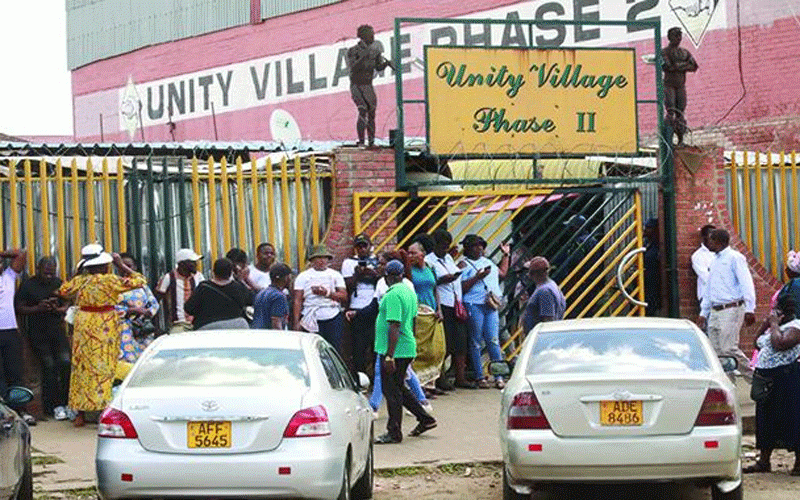
The recent crackdown by the Zimbabwe Revenue Authority (Zimra) on flea markets in Bulawayo has left hundreds of vendors without an income, raising concerns about the affordability of import duties and the state of the informal economy.
Large markets such as Unity Village, Haddon & Sly, and Mthize Flea Market were forced to shut down as authorities demanded proof of legal importation of goods.
Zimra has defended the operation as part of a nationwide effort to curb smuggling and ensure compliance with import regulations.
However, vendors argue that the real issue lies in the high cost of import duty, which forces many traders to source goods through informal means.
Unity Village spokesperson Siphokuhle Sibanda and Zimra officials have been harassing them demanding declaration forms and receipts for all imported products.
Sibanda said the raid resulted in the closure of one of Bulawayo’s oldest and busiest markets which is home to hundreds traders.
“We have Phase 1 and Phase 2, both of which were closed, affecting about 180 traders,” Sibanda said.
“We spent a week without business. Some of us had documents, but others did not. We eventually had to raise funds to pay Zimra.”
- Zimra seizes CCC campaign vehicle
- Firearms smuggling suspect weeps in court
- Eyebrows raised over Zimra tender
- Zimra clearing agent in US$437K fraud
Keep Reading
She pointed out that the high cost of import duty is at the root of the problem.
“The reason we find ourselves in this situation is that import duty is too expensive and out of reach for many of us,” she said.
Adding to the vendors’ woes is the presence of illegal traders selling similar products at lower prices, making it difficult for registered businesses to survive.
Some of the street vendors come as far as Harare and travel with overnight buses.
“Business has gone down terribly due to unlawful competitors,” she said.
“Now, with the Zimra crackdown, we spent a week without generating revenue.
“The Bulawayo City Council must get rid of illegal traders.”
Bulawayo Vendors and Traders Association director, Michael Ndiweni, said that the situation at Unity Village mirrors what has already happened at Haddon & Sly and Mthize Flea Market.
“Vendors are required to provide proof of whether their goods were declared or not,” Ndiweni said.
“Unfortunately, this process is negatively impacting people’s livelihoods.
“We have been advocating for leniency in dealing with self-employed individuals. A total shutdown only worsens the situation.”
He called for an urgent dialogue between authorities and small businesses.
“There are no alternative job opportunities. We went through a similar crisis during Covid-19, and now we are facing another disaster for small entrepreneurs,” he added.
Zimra’s marketing and corporate affairs executive, Gladman Njanji, defended the operation, stating that it was a routine nationwide post-clearance verification exercise, not a targeted attack on Bulawayo vendors.
“Our clients must understand that post-clearance audits and verifications are ongoing exercises designed to check compliance issues,” Njanji said.
“This is a nationwide exercise targeting suspected smuggled goods in all markets.”
He urged traders to cooperate with Zimra officials to expedite the process, emphasizing that compliance with import regulations and proper record-keeping is a legal requirement.
Bulawayo-based social commentator, Effie Ncube, stressed the need for dialogue between the government and small businesses to ensure compliance while maintaining business viability.
“If tax compliance and the eradication of smuggling is the goal, then there is also a need for incentives to ensure people comply,” Ncube said.
“Reducing red tape and the number and rate of taxes are some of the incentives the government needs to put on the table.”
He warned that aggressive crackdowns without addressing the underlying economic issues could further drive businesses into informality.
With Zimbabwe’s economy under immense strain, many citizens have turned to informal trading as a means of survival.
The latest Zimra crackdown has exposed the growing struggle of small business owners who find themselves caught between steep import duties and stringent regulations.









